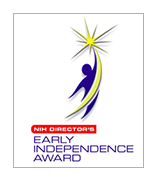2013 Awardees
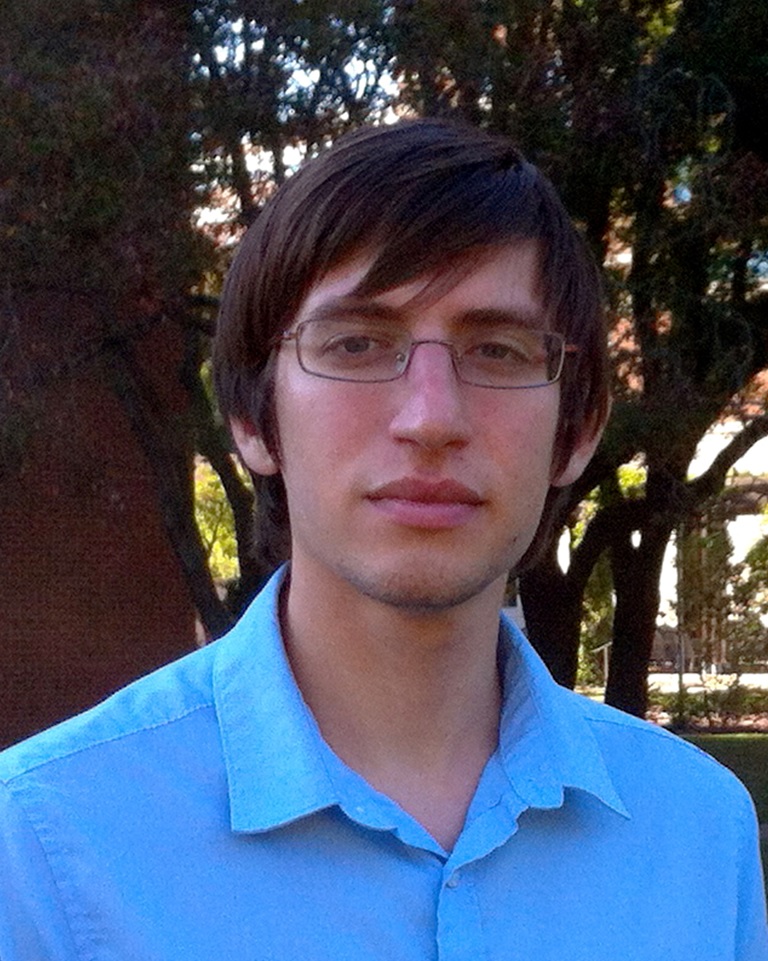
Gregory M. Alushin, Ph.D.
Rockefeller University
Project Title: Mechanosensing Via Cytoskeletal Strain
Grant ID: DP5-OD0178885
Greg Alushin received his B.A. in Biochemistry from Columbia University in 2006, and in 2012, he completed his Ph.D. in Biophysics at the University of California, Berkeley under the supervision of Eva Nogales. During his graduate studies, he used cryo-electron microscopy to address fundamental questions about the structural basis of microtubule dynamics and their role in chromosome-spindle interactions during mitosis. After a brief postdoc with Clare Waterman, Greg began his independent career as Research Fellow in the Division of Intramural Research of the National Heart, Lung, and Blood Institute in 2013 before moving to Rockefeller University as an Assistant Professor in 2017. His research program is focused on elucidating detailed molecular mechanisms by which cells utilize the actin cytoskeleton to sense and respond to the mechanical properties of their tissue environments, with the long-term goal of developing novel targets for therapeutic intervention in cancer and regenerative medicine.
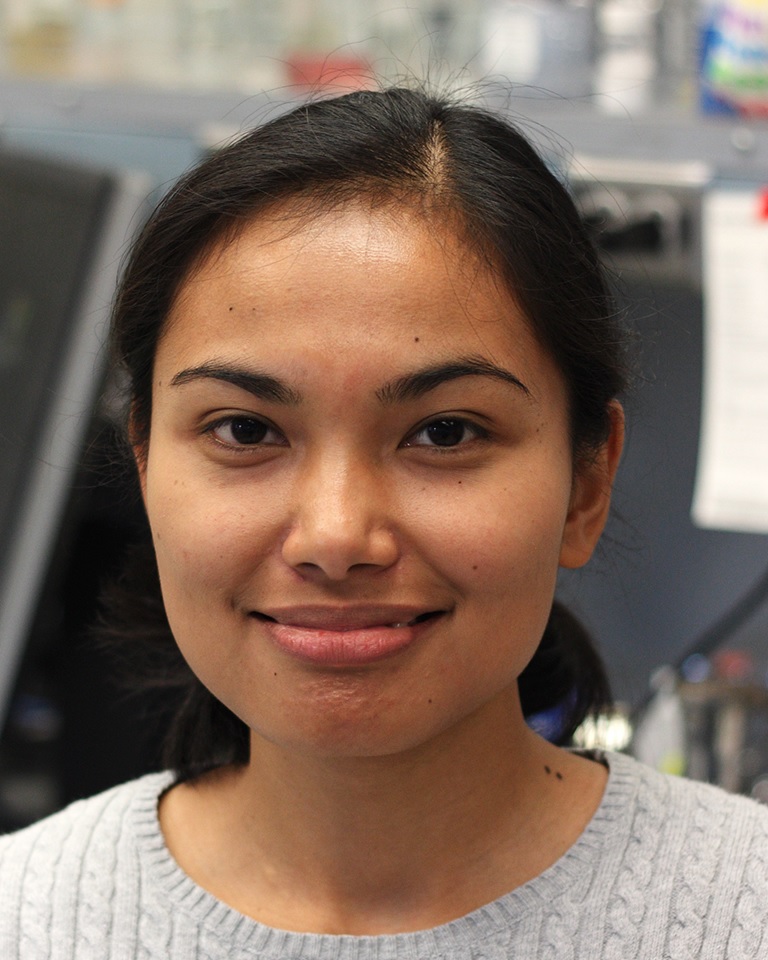
Isabelle Baconguis, Ph.D.
Vollum Institute, OHSU
Project Title: Structure and Function of Epithelial Sodium Channels
Grant ID: DP5-OD017871
Isabelle Baconguis received her B.A. in Biochemistry from the University of Pennsylvania and her Ph.D. in Neuroscience from Oregon Health and Science University. As a graduate student in the lab of Eric Gouaux, she studied the mechanism of function of acid-sensing ion channels (ASICs), ion channels implicated in nociception and fear conditioning, by x-ray crystallography and electrophysiology. Isabelle joined the Vollum Institute as a Vollum Fellow in 2013. Her lab is interested in elucidating the atomic-scale mechanism of function of epithelial sodium channels (ENaC), how perturbation in the ENaC channel disrupt activity contributing to human diseases like hypertension, and how molecules that directly modulate ENaC activity work.
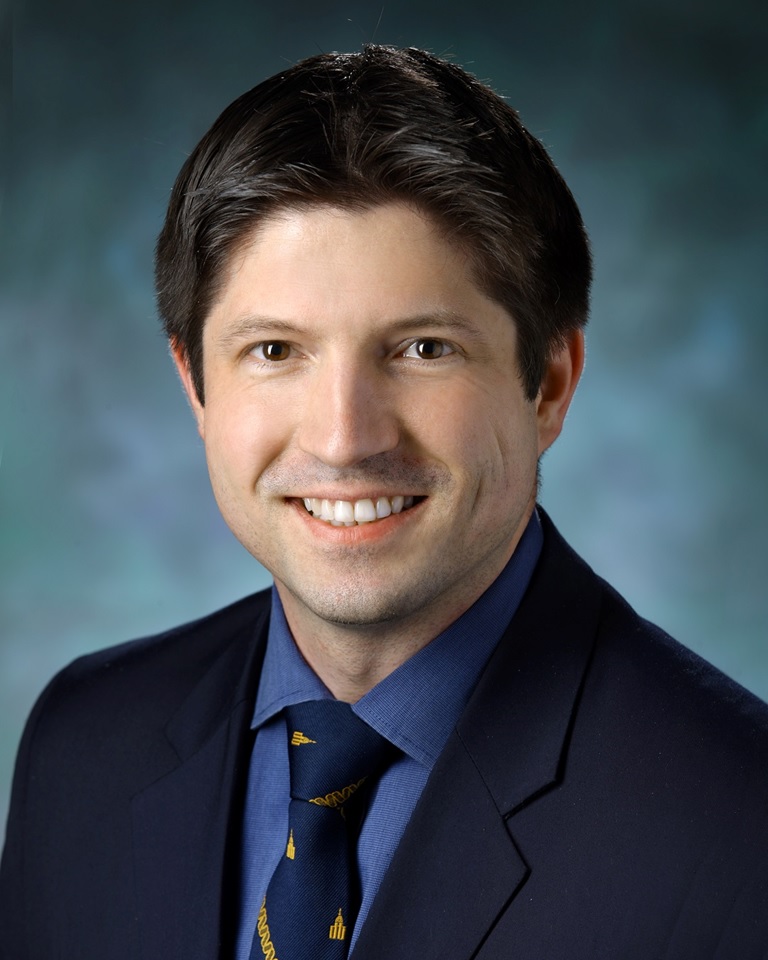
Hans Tomas Bjornsson, M.D., Ph.D.
The Johns Hopkins University
Project Title: Exploring Kabuki Syndrome as a Treatable Cause of Intellectual Disability
Grant ID: DP5-OD017877
Hans Tomas Bjornsson received his medical degree from the University of Iceland. Dr. Bjornsson then received a Ph.D. degree in human genetics from the predoctoral program in genetics at Johns Hopkins, followed by combined clinical training in pediatrics and clinical genetics at Johns Hopkins. Dr. Bjornsson joined the faculty at the McKusick- Nathans Institute of Genetic Medicine and the Department of Pediatrics in 2012, where he runs a clinic dedicated to patients with imprinting disorders and Mendelian disorders of the epigenetic machinery (Epigenetic and Chromatin Clinic). His research on a mouse model of Kabuki syndrome, a Mendelian disorder of the histone machinery, has revealed that manipulation of the epigenome may be a possible therapeutic approach for the intellectual disability seen in this disorder. Dr. Bjornsson has received numerous awards for both clinical care and scientific work, including the Frank Coulson, Jr. Award for Clinical Excellence (2012), an NIH director’s Early Independence Award (2013), the Sir William Osler Young Investigator Award from the Interurban Clinical Club (2014) and the William K. Bowes Jr. Award in Medical Genetics (2014).
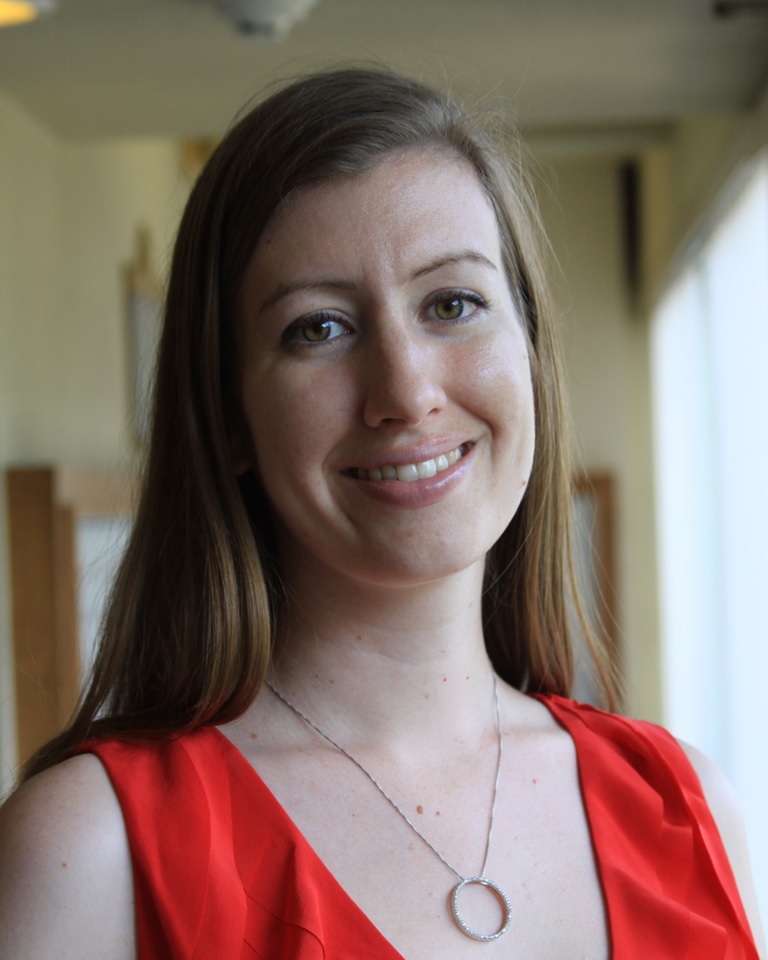
Meg Bruening, Ph.D., M.P.H., R.D.
Arizona State University, Tempe, Arizona
Project Title: The Role of Friendship Networks on BMI and Behaviors Among College Freshmen
Grant ID: DP5-OD017910
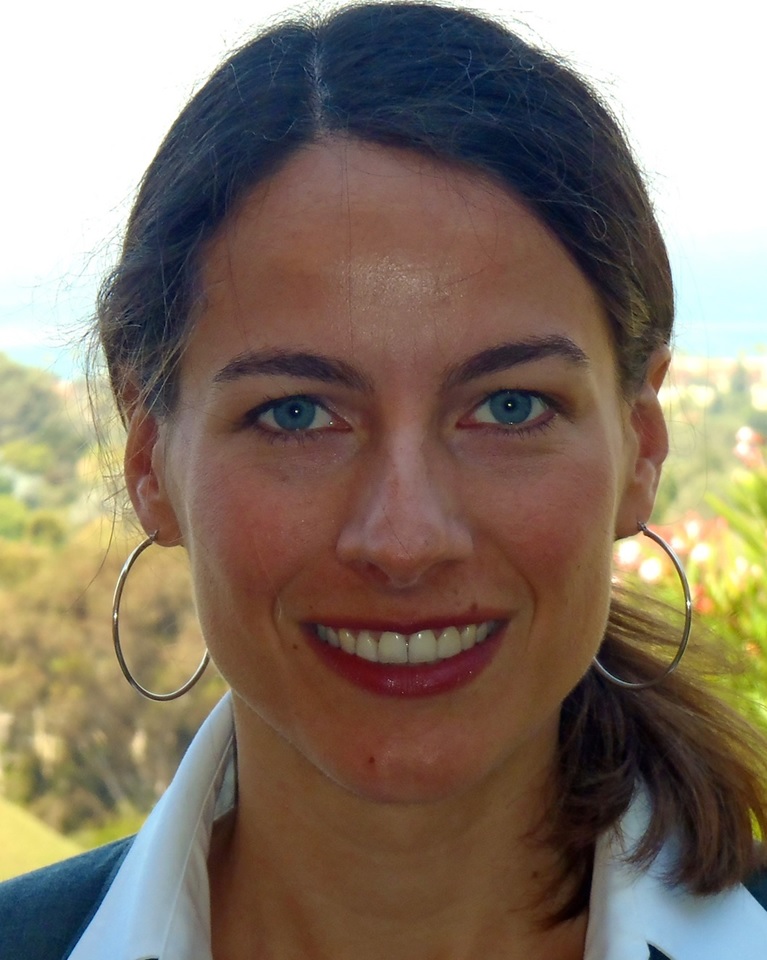
Hannah Carter, Ph.D.
University of California San Diego, Department of Medicine, Division of Genetics
Project Title: Network Approaches to Identify Cancer Drivers from High-Dimensional Tumor Data
Grant ID: DP5-OD017937
Dr. Carter received her masters in Electrical and Computer Engineering from the University of Louisville in 2004 and her Ph.D. in Biomedical Engineering from Johns Hopkins University in 2012. While at Johns Hopkins, Dr. Carter developed CHASM, a computational tool to identify causal ‘cancer drivers’ among thousands of mutations detected in tumor exome sequencing studies. Currently, she is an Assistant Professor at the University of California, San Diego in the Department of Medicine and Division of Medical Genetics, working in the area of cancer systems biology and precision medicine. Ongoing projects in the Carter Lab use techniques from systems biology, machine learning, biostatistics and information theory to model the biological network reorganization that occurs in cancer cells. Dr. Carter is a Siebel Scholar and was recently selected as the Johns Hopkins 2015 Outstanding Recent Graduate.

Christine Ann Denny, M.S., Ph.D.
Columbia University Health Sciences, New York
Project Title: Optogenetic Dissection of Hippocampal Circuitry Underlying Alzheimers Disease
Grant ID: DP5-OD017908
Dr. Christine Ann Denny is an Assistant Professor in the Department of Psychiatry at Columbia University and a Research Scientist IV at the Research Foundation for Mental Hygiene, Inc., where she has a laboratory studying the mechanisms of learning and memory in the context of cognitive and psychiatric disorders. Christine’s laboratory focuses on utilizing a murine line, the ArcCreERT2 mice, that she previously created to indelibly label and then manipulate individual memory traces. After being awarded the NIH Director’s Early Independence, Christine also received a NARSAD Young Investigator Grant and is a Co-Investigator on a NYSTEM Shared Facilities for Stem Cell Research Grant. Prior to establishing her laboratory, Christine received her Ph.D. from Columbia University, where she studied the impact of adult hippocampal neurogenesis on learning and memory in Dr. René Hen’s laboratory. Before attending Columbia University, Christine received her B.S. and M.S. from Boston College, where she studied combinatorial lysosomal storage diseases such as GM1 gangliosidosis and Tay Sachs disease in Dr. Thomas Seyfried’s laboratory.

Elaine Y. Hsiao, Ph.D.
California Institute of Technology
Project Title: Uncovering Microbial Modulators of Neuroactive Molecules as Novel Therapeutics
Grant ID: DP5-OD017924
Dr. Elaine Y. Hsiao is an Assistant Professor in the Department of Integrative Biology & Physiology at UCLA, where she leads a laboratory studying fundamental interactions between the microbiome, brain and behavior, and their applications to neurological disorders. Elaine was a Research Assistant Professor at Caltech from 2013-2015, where her group uncovered novel microbial modulators of host serotonin biosynthesis. Elaine received her Ph.D. from Caltech; her studies on the relationships between the microbiota, immune system and nervous system led her to discover that the microbiota can regulate behavioral, metabolic and gastrointestinal abnormalities relevant to autism spectrum disorder. Her work in these areas has led to several honors, including distinction as Forbes’ 30 Under 30 in Science and Healthcare, National Geographic’s Emerging Explorer Award and fellowships from the National Institute of Mental Health and Autism Speaks. Before this, she received a Bachelor’s degree in Microbiology, Immunology and Molecular Genetics from UCLA.

Anupam B. Jena, M.D., Ph.D.
Harvard Medical School and Massachusetts General Hospital
Project Title: Physician Determinants of Health Care Spending, Quality, and Patient Outcomes
Grant ID: DP5-OD017897
Anupam B. Jena is an associate professor of health care policy and medicine at Harvard Medical School and an internist at Massachusetts General Hospital. His work focuses on the economics of physician behavior, medical malpractice, and the economics of innovation. His work has been published in leading journals of economics, medicine, and health policy and has been featured in the New York Times, Wall Street Journal, Washington Post, Forbes, National Public Radio, and Freakonomics. He is a recipient of the Eugene Garfield Award from Research America for the best paper in economics on the economic impact of medical research and a recipient of the International Society for Pharmacoeconomics and Outcomes Research New investigator Award. Dr. Jena also served on the Institute of Medicine Committee on Diagnostic Errors in Health Care. Dr. Jena graduated Phi Beta Kappa from the Massachusetts Institute of Technology, received his M.D. and Ph.D. in economics from the University of Chicago, where he was awarded training fellowships from the NIH Medical Scientist Training Program and the National Institute on Aging, and completed his residency in internal medicine at Massachusetts General Hospital.
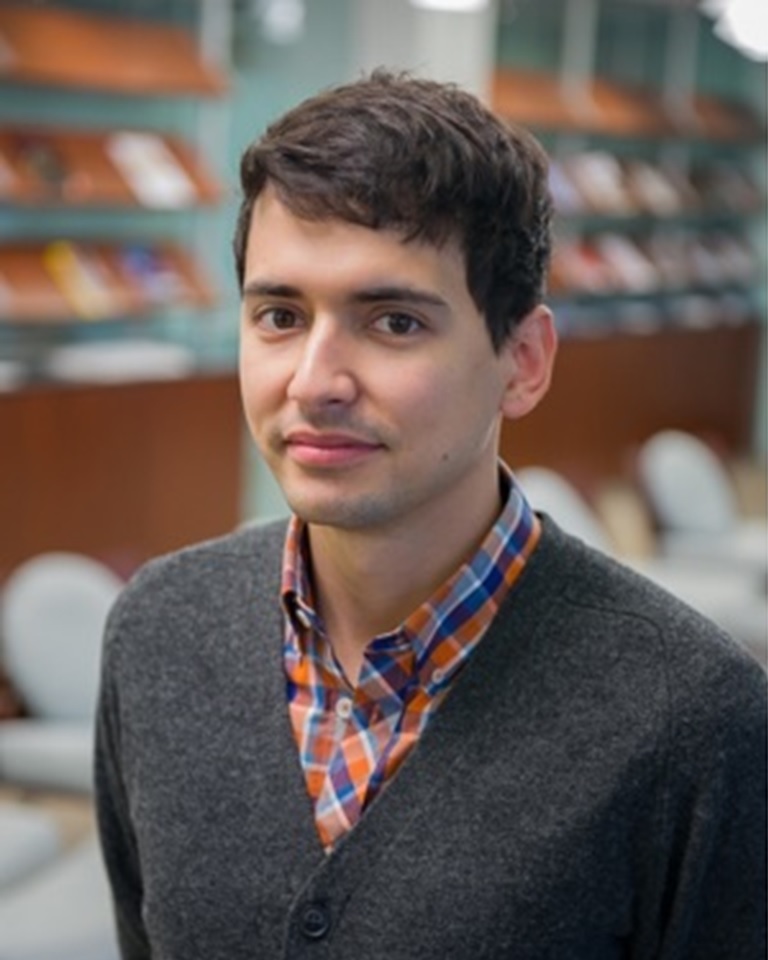
Sebastian Lourido, Ph.D.
Whitehead Institute for Biomedical Research
Project Title: Dissecting Essential Signaling Pathways in Apicomplexan Parasites
Grant ID: DP5-OD017892
After completing his Ph.D. at Washington University, St. Louis, Sebastian Lourido joined the prestigious Whitehead Fellows program in November 2012, to continue his research on the molecular basis of parasitic diseases. Sebastian and his lab are currently studying the parasite Toxoplasma gondii, which latently infects an estimated 25% of the world’s population and can cause harmful infections in immunocompromised individuals and pregnant women. Toxoplasma also serves as a model for studying Plasmodium, which causes malaria and contributes to more than a million deaths each year. Sebastian is the recipient of a Spencer T. and Ann W. Olin Fellowship (2012); the Molecular Cellular and Immunoparasitology Scientific Award (2011); the Schlesinger/Olivo Travel Award (2009 & 2010); and the NIH Director’s Early Independence Award (2013).
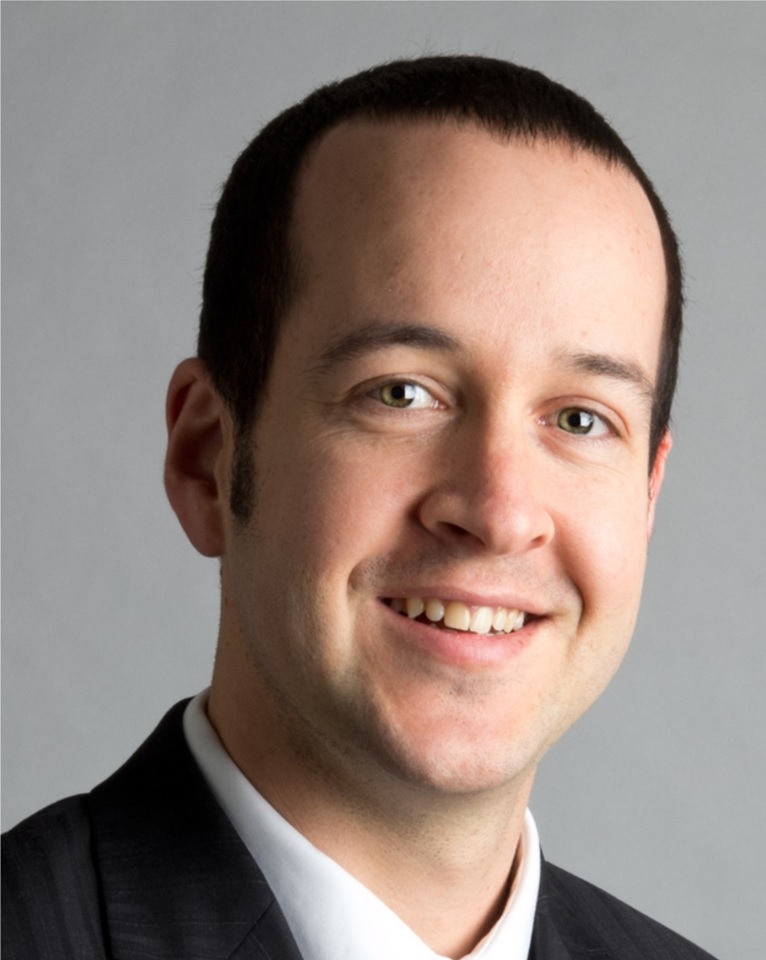
Jonathan F. Lovell, Ph.D.
State University of New York at Buffalo
Project Title: Targeting Tumors with Resealable Nanovesicles Permeabilized by NIR Light
Grant ID: DP5-OD017898
Dr. Lovell received a B.S. degree in Systems Design Engineering from the University of Waterloo and went on to a M.S. degree in Biochemistry at McMaster University, working in the group of Dr. David Andrews. He pursued doctoral studies at the Institute of Biomaterials and Biomedical Engineering at University of Toronto under the guidance of Dr. Gang Zheng. In 2012, Dr. Lovell received his Ph.D. and joined the biomedical engineering faculty at University at Buffalo that same year. In 2013, Dr. Lovell was awarded the NIH Early Independence Award. His main research interests involve developing clinically translatable nanoplatforms for improving disease diagnosis and treatment.
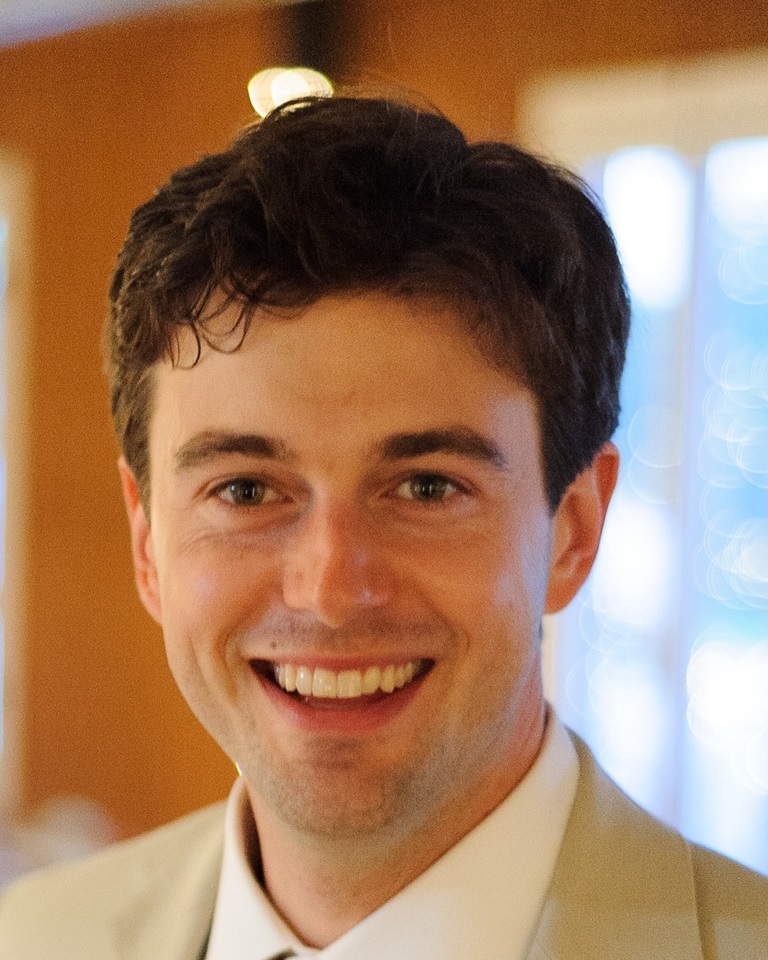
William Ludington, Ph.D.
University of California, Berkeley
Project Title: Developing a Reduced Complexity Model Gut Microbiome in the Behavior Model, Drosophila, and Bacteriophage Therapies to Modulate Behavior Through the Microbiome
Grant ID: DP5-OD017851
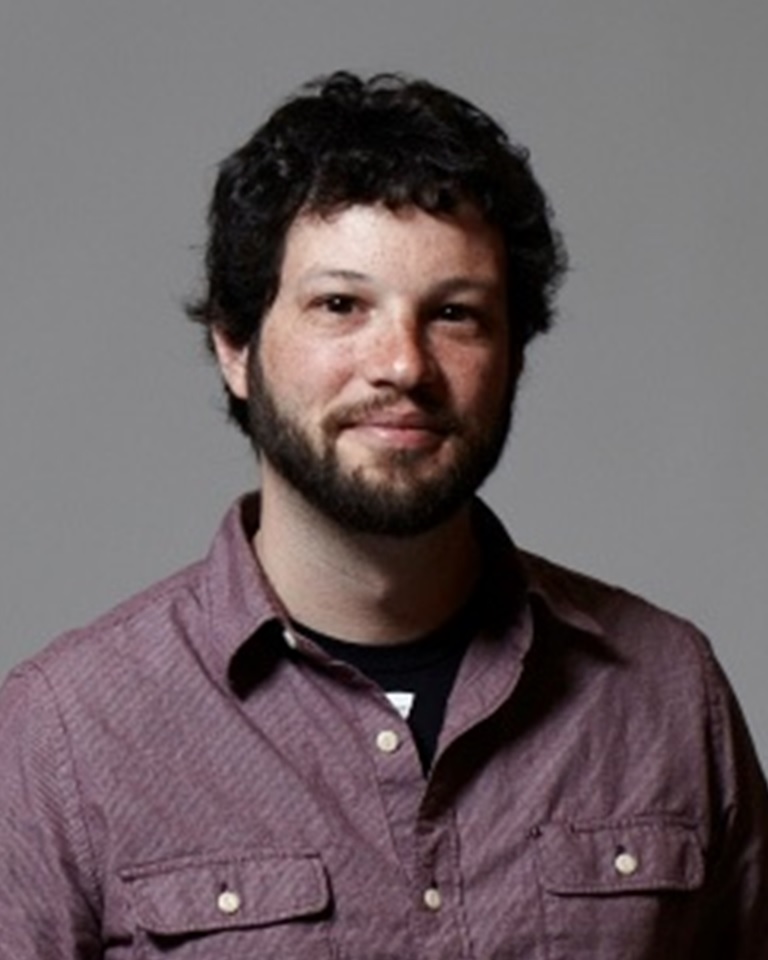
David Pincus, Ph.D.
Whitehead Institute for Biomedical Research
Project Title: Quantitative Approaches to Reveal the Homeostatic Control Mechanisms of Stress Responses
Grant ID: DP5-OD017941
David Pincus joined the Whitehead Institute as a Whitehead Fellow in the fall of 2012, after completing his Ph.D. at UCSF under the supervision of Hana El-Samad and Peter Walter. In the El-Samad and Walter labs, David used quantitative approaches to study how cells respond to stress, specifically focused on understanding mechanisms that tune the Unfolded Protein Response to maintain homeostasis in the endoplasmic reticulum. Prior to graduate school, David was an undergraduate at UC Berkeley, and he worked as a technician at the Molecular Sciences Institute under the direction of Orna Resnekov and Roger Brent studying the effects of phosphorylation in regulating transcription in a prototypical MAPK pathway. His laboratory at the Whitehead Institute is focused on elucidating the mechanisms that govern cellular stress responses and decision making circuits.
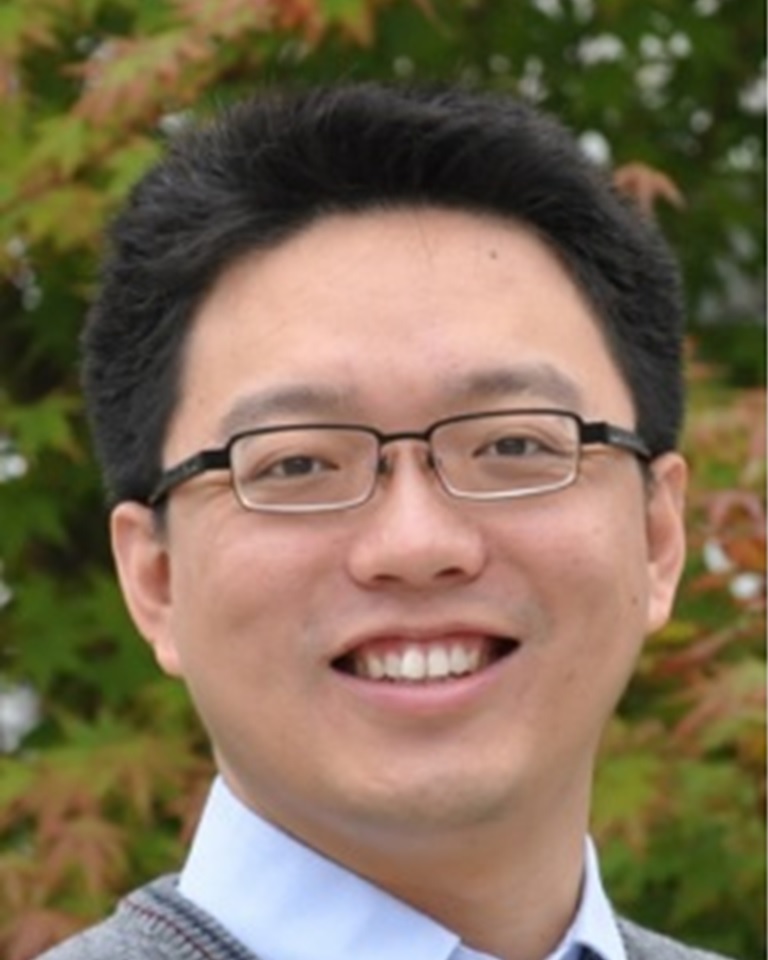
Lei S. Qi, Ph.D.
University of California San Francisco
Project Title: A Novel RNA-Guided Platform for Sequence-Specific Cell Reprogramming
Grant ID: DP5-OD017887
Lei (Stanley) Qi is an Assistant Professor in the Departments of Bioengineering and Chemical and Systems Biology at Stanford University. He received a B.S. in Physics and Mathematics with distinction from Tsinghua University in China in 2005, and a Ph.D. in Bioengineering from the University of California, Berkeley in 2012. He performed independent research as a Systems Biology Fellow at the University of California, San Francisco from 2012 to 2014. He has invented the CRISPR interference (CRISPRi) technology for precise transcription activation and repression, and the CRISPR technology for genome imaging in living cells. His work has lead to high-throughput functional screening in the human genome. His current research focuses on genetically reprogramming cells for cell-based therapeutics through precise and coordinated expression of multiple sets of genes.
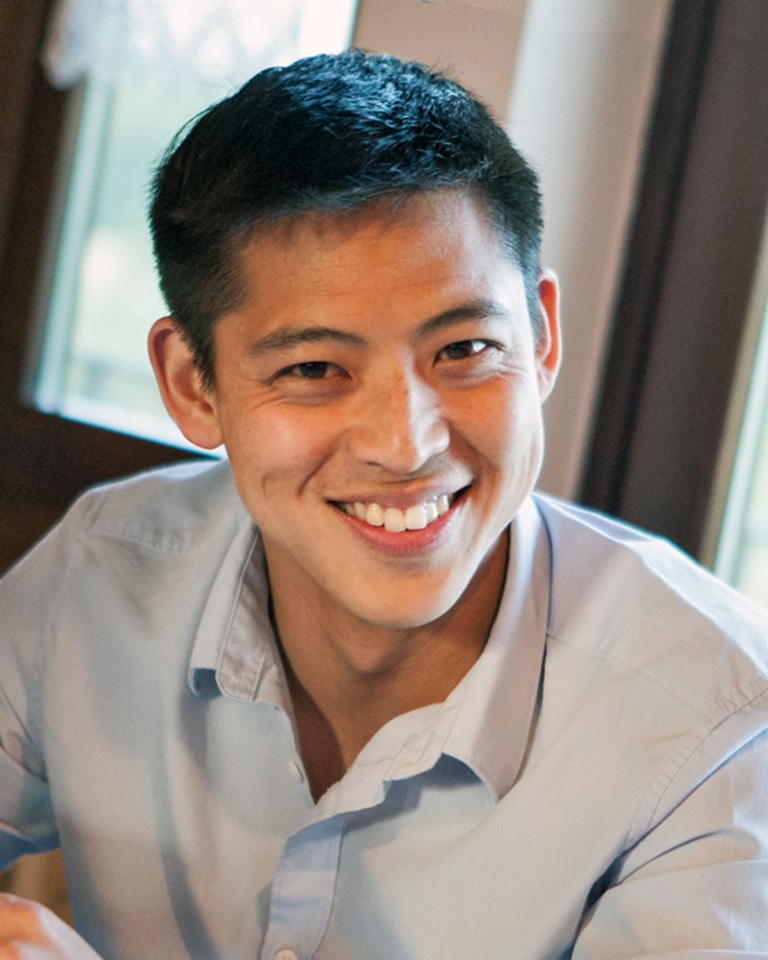
Eric T. Wang, Ph.D.
Koch Institute, Massachusetts Institute of Technology
Project Title: Post-Transcriptional Regulation of Gene Expression in Neuromuscular Disease
Grant ID: DP5-OD017865
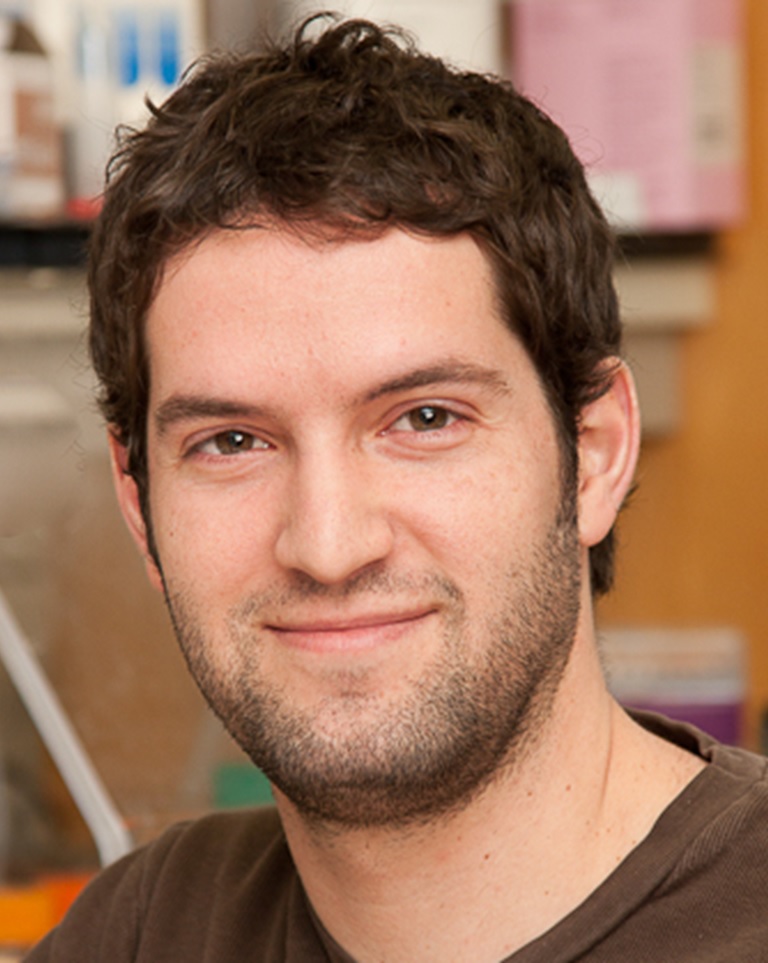
David Weinberg, Ph.D.
University of California San Francisco
Project Title: Formation and Regulation of the Translating mRNP
Grant ID: DP5-OD017895
David Weinberg received a joint B.S./M.S. degree in Molecular Biophysics & Biochemistry from Yale University in 2007, where he worked in Sandra Wolin’s lab studying the function of noncoding Y RNAs. He then obtained his Ph.D. in Biology from the Massachusetts Institute of Technology in 2013. At MIT, his Ph.D. research in David Bartel’s lab at the Whitehead Institute for Biomedical Research led to the discovery and biochemical characterization of RNA interference in budding yeast. In September 2013, David started his lab at the University of California, San Francisco as a Sandler Faculty Fellow in the Department of Cellular & Molecular Pharmacology. His lab applies biochemical, genetic, and computational approaches to understand the molecular basis of translational control and to identify novel mechanisms of post-transcriptional gene regulation.


